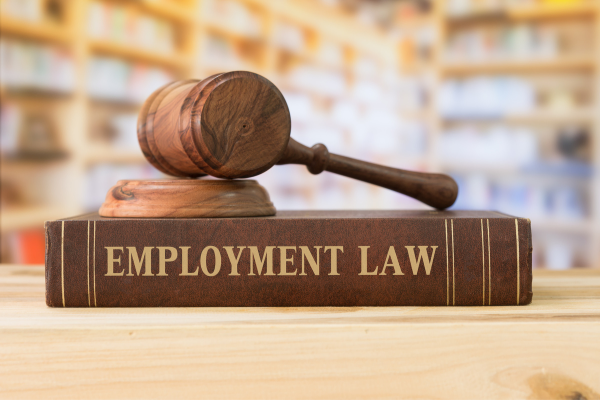Employment Attorneys – Roles and Importance

In today’s ever-evolving job market, employment attorneys play a crucial role. Their expertise in legal matters is in high demand by employers and employees alike, as they address various employment-related issues while ensuring everyone’s rights and interests are protected. This article will explore employment attorneys’ vital functions and significance in modern society.
Read More: The Legal Rights of Employees: A Guide to Workplace Law 2023
Contents
Who Are Employment Attorneys?
Employment attorneys are legal professionals who specialize in employment law. They provide legal advice and representation to employees and employers on workplace-related matters. These attorneys handle various issues, such as wrongful termination, workplace discrimination, sexual harassment, wage-hour disputes, employment contracts, and labor union matters.
In other words, they are a crucial part of any organization, whether for the boss or the employee. The primary goal of an employment attorney is to protect their client’s rights and interests under labor laws and regulations. Whether you’re an employee dealing with workplace issues or an employer seeking guidance on labor-related matters, an attorney can provide the legal expertise and advice you need.
Roles of Employment Attorneys
Employment attorneys advise employers on various personal issues, including creating fair and practical employment procedures and policies, ensuring compliance with applicable regulations and laws, and effectively communicating policies to all staff members.
They also educate human resources personnel on administering policies equitably and efficiently, staying up-to-date with evolving employment laws, and ensuring that policies remain current. They may also act as legal representatives in court when necessary and serve as advocates in different dispute resolution approaches, such as negotiation, arbitration, or mediation.
They counsel employers on the implications of fair termination procedures for employees and may be engaged in drafting and negotiating employment contracts for either employees or employers. In cases of alleged breach of contracts, an employment attorney can represent either party. You can read this article to learn more about the role of such a personnel.

Things to Consider When Selecting Employment Attorneys
When looking for an excellent attorney, check for knowledgeable ones if you have issues in your workplace. But do not get carried away with only finding a suitable one. Checking the fee structure, skill levels, and resources at their disposal is also crucial if you will have a beneficial result.
It is vital to note what the attorneys have at the tip of their fingers: the current federal and state labor laws, employer guidelines, and proposed laws at the federal and state levels.
A good one should be able to break down their charge structure for you to agree with them regarding billing, fees, and other charges that may occur during the litigation. With all these in mind, let’s consider some factors when choosing an employment attorney.
1. Focus
Ensure to employ an attorney who is focused on employment regulation and law. Avoid any attorney who deals with a wide range of cases or practices in various legal fields because workplace regulation is a highly specialized area of expertise.
An employment attorney majoring in workplace law is current with the new laws and has the comprehensive knowledge to pursue and prevail in your case successfully.
2. Good Background
Ensure you go for an attorney who holds membership in the Government Bar. Most websites provide information on whether or not an attorney’s credentials have been presented. You should choose one from your state because you will be closer and more familiar with them than one in another state.
3. Area of Specialization
To get an attorney, look for one with specialties in representing your case. Suppose you’re contemplating pursuing a lawsuit related to sexual harassment. In that case, it’s crucial to find an employment attorney with experience handling similar cases and a proven history of success. Check out this resource https://www.thebusinesswomanmedia.com/ to learn more about what to consider.

When Is Termination of Employment Considered Wrongful?
Employees can assert that their termination from work was unjust if they were sacked based on a discrimination note. An employer can terminate an employee’s employment because he is from a particular class, which may include age, religion, sexual orientation, gender, color, disability, and national origin, among others.
Another reason could be a breach of fair dealing and a commitment to honesty and fairness. Courts in several states assess every employment deal as having an inherent commitment to acting in honesty and ensuring fairness. If an organization terminates an employee’s contract based on made-up reasons contrary to the agreed pledge, it is regarded as wrongful termination of employment.
Also, the abuse of government policy could be considered another way to terminate employment wrongfully. If a firm fires a worker because they are a recognized political party or group member, it is considered wrongful.
Additionally, an unlawful job termination may be when an organization sacks a worker because they went on unpaid and qualified leave that they are entitled to for medical or other personal reasons.
Under these wrongful terminations, certain allegations of worker violations may necessitate the submission of a petition to either a federal or state agency before pursuing a legal case. Should the department or agency fail to resolve the matter and the worker must resort to litigation in a civil court to seek redress, an employment attorney is available to advocate for the worker in their lawsuit.
This is because this personnel is conversant with many state and federal agencies that impose state and federal laws applicable to employment. Therefore, an attorney can help with the claim if an employee has an assertion based on the regulations and laws that are imposed by these organizations.

Why You Need an Employment Attorney
Although hiring one can be costly for employees and employers, you should have one. Before there is any disagreement, an employer can consult such legal personnel to avert it. The attorney ensures that an employer develops policies that comply with appropriate laws. They also ensure that the policies are well administered to avoid disputes.
As a worker, you need to get an attorney when faced with challenges in your place of work. They can assist you in navigating the procedures for filing and managing a claim. Where there is a need for a lawsuit, a lawyer can assist you as legal representation in a law court and offer you guidance all through the trial proceedings.
Read More: Employment Law: Your Rights as an Employee (2023)
Understanding How Lawyers Charge for Their Services
When working with a lawyer, the details of your agreement can impact the final cost of the legal services you receive. Several factors can influence the fees charged by a lawyer, including the time spent on your case, the attorney’s reputation and experience, the complexity of your case, and the costs of running their practice.
Discussing fees and fee structures with your lawyer before signing any agreements is essential. This will ensure that you understand the costs and decide which attorney to hire. Here are various common fee structures used by attorneys:
1. Consultation Fees
The cost of an initial consultation with a lawyer can vary depending on the attorney. Some may bill a fixed fee, while others bill by the hour. During this meeting, you can expect to discuss the details of your case and determine whether or not the attorney is a good fit for you. It is important to clarify the fee structure beforehand, so you know that the lawyer will charge you and if you can afford it.
2. Contingency Fees
In some cases, attorneys may work on a contingency basis, meaning they only get paid if you win your case. The charge is typically a fraction of the total amount awarded to you. You won’t owe the attorney a fee if you don’t win, but you may still be responsible for other costs.
The percentage charged can vary, but it is typically around one-third of the recovered amount. Some lawyers may offer a flexible fee structure that adjusts as the case progresses, and there may be a cap on the percentage they can collect.
3. Flat Fees
For straightforward or routine cases, an attorney may charge a fixed, lump-sum fee that covers all aspects of the case. This fee structure is less common but can benefit clients wanting to know the total cost upfront.
4. Hourly Rates
Another common fee structure is hourly billing, where the attorney charges for the time spent on your case. The amount can vary according to the attorney’s experience and the specific tasks performed. Establishing the fee arrangement beforehand is important so you know what to expect and can budget accordingly.
5. Referral Fees
If an attorney refers you to another attorney, they may receive a percentage of the whole fees charged by the other attorney. However, the total cost should still be okay and acceptable to you. In other words, the payment structure should not unfairly increase the amount you pay for the services. This resource here has much more to explain about these fees and how to pay them.
Conclusion
These attorneys play a crucial role in shaping the dynamics of the modern workplace. They are champions of workplace justice, striving to ensure that employees’ rights are protected and employers are well-informed and as well compliant with labor laws. Fortunately, there are many of them in every state, so you will always find what you need.





